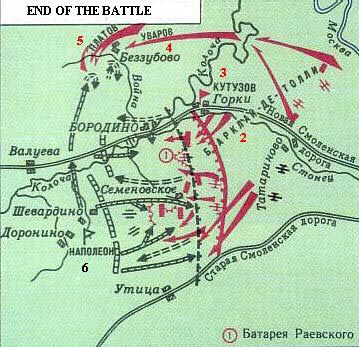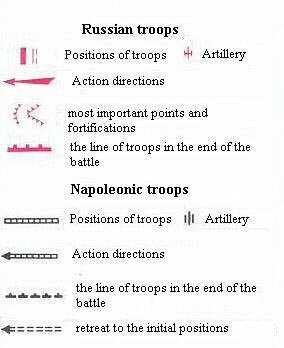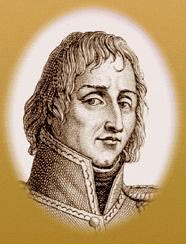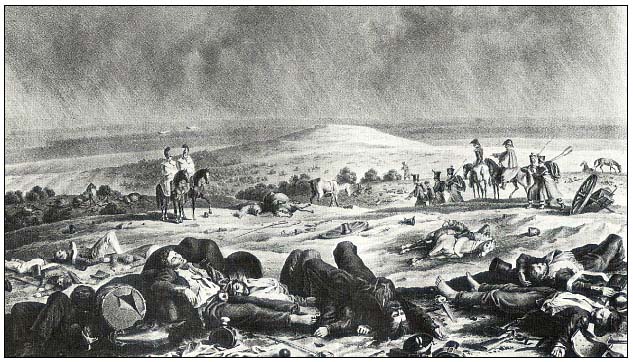
|

|
|
|
 General Nansouty |
Now the Russian left flank was moved: first by Konovnitsyn who replaced Bagration, and then by Dokhturov who replaced Konovnitsyn.
By 4 p.m. three quarters the Russian defenders of the battery were killed, and the rest hurled back. The battery was now French. But the Russians did not leave the field of battle and their artillery did not stop. The Russian cannon-balls began to fall near the French Emperor and some flew over his head.
The fighting for the battery of Raevsky brought the French only moderate tactical success, because of nearby fighting. Napoleon's whole plan was ruined. In the early morning, the French had the continuous unbroken Russian front before them. To make further attempts, Napoleon would have to use his last reserve, the Guards, or admit his failure and pursue the battle no further. At first Napoleon considered continuing the attacks. But before making a final decision, he mounted a horse and rode to the Semenovskie Hills and the battery of Raevsky. After this reconnaissance, he concluded that
bringing the Guards into the battle successfully was indeed unlikely. And should the attack be unsuccessful, he would risk having no fresh troops to cover his retreat in case Kutuzov brought his reserves into battle and took the offensive.
Meanwhile, Kutuzov took into account all the changes in different parts of the battle, and quickly responded to them. He correctly defined a result of the numerous bloody and fierce attacks - the French were more tired and wasted than the Russians. His rich military experience told him that the winner would be the side still able to stand at the end of this battle.
He was right. When darkness fell, Napoleon gave the order to withdraw his disordered troops to their initial positions. The French abandoned Raevsky's battery, Semenovskoe village, the Utitsky Hill and Outitsa village that they had captured with such terrible losses.

The Borodino battlefield after the battle. By Faber du Four
The losses to the Russian army were also terrible: about 44 thousand men - say 36% of the whole army's fighting force.(2)
Such was the end of this bloody battle, that gave no results as it finished in the same place it had begun. "The most terrible of all my battles was the one at Moscow. The French showed themselves deserving to win the victory, and the Russians proved themselves deserving to be invincible" wrote Napoleon, not long before his death.
- Zhilin P. Yaroslavtsev A. "The Borodino Battle", Moscow, 1952, p.76 Archives du Service historique de l'Armee Francaise. D.C.130 Grande Armee. Etat nominatif des officiers ties a la Journee du 7 septembre 1812.
- Zhilin P. Yaroslavtsev A. "The Borodino Battle", Moscow, 1952, p.78